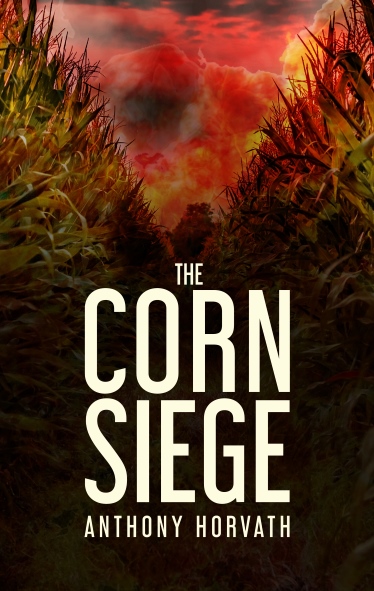You may reach Dr. Anthony Horvath by submitting your information in this contact form.
Contact
Buy Anthony’s Book

ABOUT THE BOOK
Average Americans were told, "You will own nothing, and be happy." They are not happy, but now they have nothing, so have nothing left to lose. But what to do? A mysterious 'Corn King' proves to be the catalyst. The 'Corn King' explains how activist-soldiers like Saul Alinsky have targeted them, and reveals how Americans can turn the tables on their oppressors using the same tactics that were used against them.
Individuals are tired of being chewed up and spit out in the progressive's bid to create a 'perfect society, ' but is it too late to do anything about it? In The Corn Siege, America finally ruptures, the rage spreading from 'fly over' country in a great wave that ultimately reaches the coasts, threatening to drown them.
The Corn Siege is satirical fiction, not prophecy. It glories in skewering the people who believe we don't need farms because we have grocery stores. It mocks the people who believe you can plant a cow and harvest lettuce. In The Corn Siege, people get what they deserve: the harvest of the kinds of seeds they intentionally planted.
REVIEWS
From Michael P. "Ripped from the headlines, if you live in a non-coastal US state this book could be for you."
From Joseph C. "I cannot recommend it strongly enough for the libertarians and conservatives in your life. It would also be good for liberals who actually think, or have the potential to rethink their position. It should be mandatory reading in college literature courses. But it won’t be, and that’s part of the point of the book."
From Snap. "Another landmark piece of literature, “Fahrenheit 451”, describes a dystopian future in which the noble purpose of firefighters is ‘corrupted’ by being tasked to burn books. In the “The Corn Siege” one gets a similar feeling and experiences that “451” provides, however there are subtle and simultaneously significant differences. Instead of book burning, it is a burning of the meaning and purpose of the Constitution. Thus, instead of securing the liberties of the people, the words are corrupted in order to justify any well-meaning intrusion that can be thought up, even when the words of the Constitution plainly preclude such intrusions. It is Horvath’s commentary on that corruption of the intended message that governs his entire story.
Somewhere, and Horvath alludes to Saul Alinsky’s writings in the 1970’s as being a possible root, American ideals have been hijacked to create a distorted present-day society. This is a major departure from what was intended by the founding fathers. Half the country has begun arming itself in response. The other half is confused, asking “Why? Why can’t we all just get along?”.
